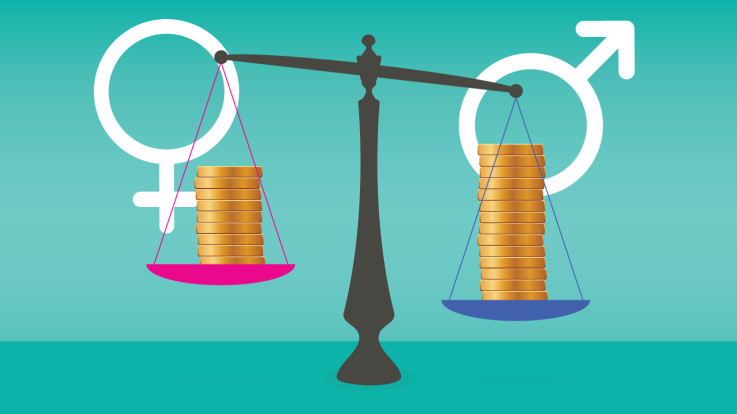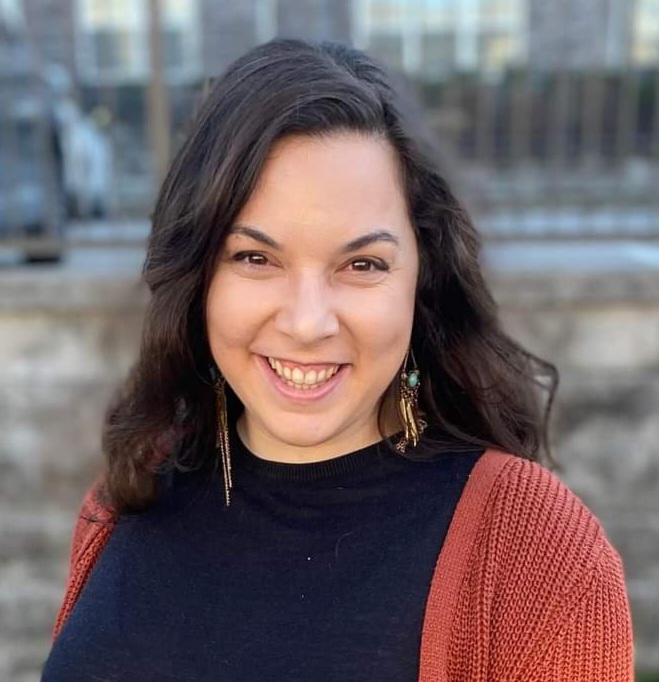
Liberation.
This word has shown itself to me since Yom Kippur when my synagogue did a learning session on Albert Einstein. One quote we reviewed was, “the true value of a human being can be found in the degree to which he has attained liberation from the self.” While there were many different interpretations of what he meant, I shared that being liberated from self is to be free from the internal and emotional chains that bind us.
This idea of liberation came again to me on the WRJ Civil Rights Journey in October 2022. As we sat in the Ebenezer Baptist Church, in Atlanta, GA, we heard a sermon from Reverend Dr. Otis Moss III entitled “Miseducation to Liberation,” where he discussed the impact of miseducation on our ability to be free. Using his chosen passage as a guide, he told a story about when he was young and loved the circus. As he looked up at the large elephants being controlled by humans, he thought, ‘They are so much larger. Why don’t they go free?’ It was explained to him that ever since they were babies, these elephants were chained, limited, and controlled at the will of their trainers. This is how they were raised. The Reverend compared this to the modern day, and how marginalized communities are taught they must stay within the boxes society has assigned to them. This miseducation has led people to believe we must stay in the confines of the roles and stereotypes that have been impressed upon us. However, education is a powerful tool for self-liberation.
As I sat in this service, I couldn’t help but think of WRJ and how we, as a community, fight for equity and freedom. And how we use education, action, and advocacy to fight for ourselves and others.
On October 12th, we held the annual Reform Pay Equity Initiative (RPEI) Meeting. RPEI is coordinated by WRJ and Women’s Rabbinic Network (WRN). This initiative’s goal is to close the gender wage gap in the Reform Movement. For seven years, RPEI has been working towards this goal by conducting aggregated salary studies for the Movement, providing education sessions and training, and taking action by changing policies to align with best practices. RPEI includes the participation of all legs of the Movement. In our annual meeting, representatives of the Reform Movement’s organizations convened to share their efforts in the past year to work towards closing the wage gap. We learned from each other and brainstormed ideas on how to address these inequities within our own institutions.
WRJ is a leader in the fight for pay equity. As an organization, we are conducting training on diversity, equity, and inclusion (DEI) and implicit bias, sexual harassment (WRJ says STOP), and equitable hiring practices. In partnership with WRN this year, we conducted a four-part training series with National Association for Temple Administrators (NATA) on pay equity and plan to work with educators and clergy this year. In addition, WRJ will continue mobilizing advocacy for legislative interventions for pay equity, including:
- The Raise the Wage Act (to lift the federal minimum wage to $15)
- The Paycheck Fairness Act (to end pay discrimination)
- The FAMILY Act (to provide paid family and medical leave for American workers)
Sisterhoods can take action in these efforts by:
- Attending and implementing programs and webinars on inequities
- Advocating for ballot and legislative initiatives that support pay equity and paid leave policies
- Urging your congregations and all arms of the Reform Movement to implement ethics accountability policies.
- Encourage congregational leadership to set expectations and model anti-biased decision-making.
As we learned from the Reverend, the opposite of liberation is not enchainment, it is miseducation. Through RPEI, WRJ and WRN model this by recognizing the inequities, investigating and understanding the structures that create and perpetuate them and educating on how to implement fair practices.
For more information about the Reform Pay Equity Initiative, visit our webpage.
Related Posts

Continuing to Educate and Empower People Together

My Challah-Making Experience


